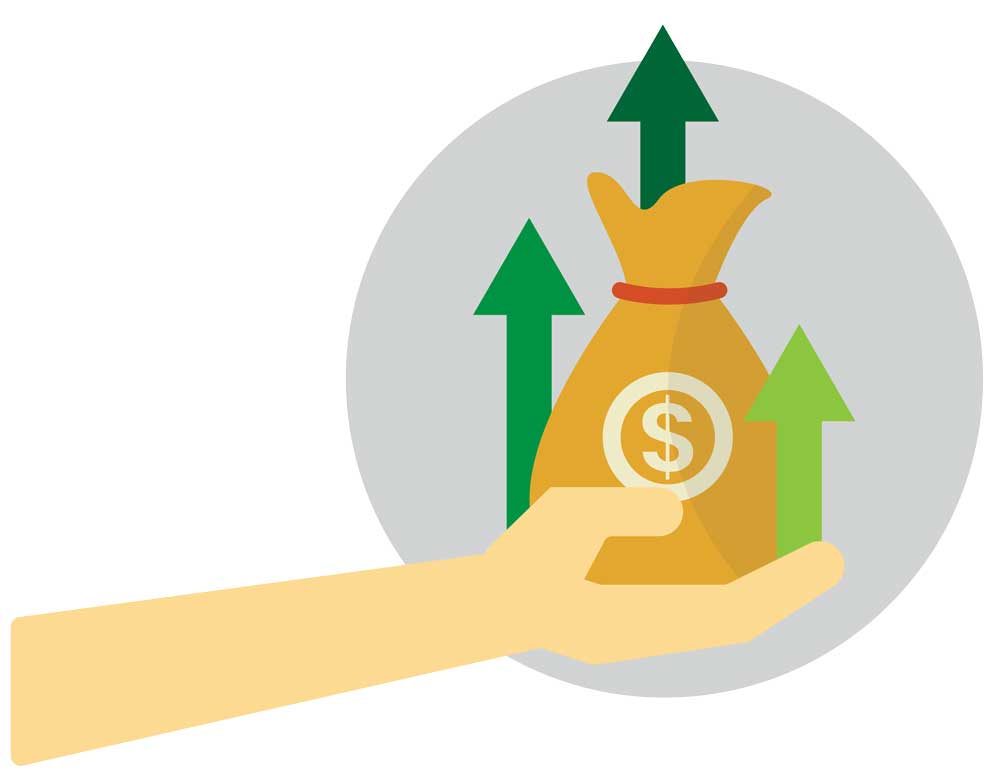Any dealer can sell and service equipment. But how the employees of a dealership interact with customers is what truly makes the difference between customer service and a customer experience.
Jim Facente, president and founder of Creative Sales Solutions, says that offering customers an exceptional customer experience can make employees extremely valuable to a dealership.
“You’re going to have customers wanting to do business with your dealership simply because of you,” he says. “It’s going to make your job a lot easier, more fun and you can dramatically increase sales without selling in the process.”
Providing an exceptional customer service experience has been shown to increase sales and profits, according to Facente. When customer experience is treated as a commodity, it becomes unmemorable, as long as customer service is delivered as expected, on time and as promised.
“One of the biggest mistakes we see so many companies make is they have this big misconception that if nobody griped, then they’ve created a loyal customer for life,” Facente says. “If it’s something really different, then it’s unique to the customer and sparks a positive reaction. It also leaves an impression with the customer and becomes memorable.”
Dealership Check Up
Jim Facente, through his company Creative Sales Solutions, will call and evaluate up to three of your employees at no charge. “The great thing about this offer is the entire call is recorded so dealers can hear what opportunities are being missed during a call from a customer.” He says CSS has made over 3,500 evaluation calls to dealers throughout North America.
To take advantage of this free offer, write to Jim Facente at jim@css12.com.
Going above and beyond with the customer experience creates a need in the customer to have the behavior repeated, making them want to continue doing business with that dealer, Facente observes.
“Customers don’t remember how much you know, what you say or do,” he says. “Customers remember how you make them feel. It’s about the emotion for the customer. It’s critical.”
How customers are treated during a challenging time is also remembered by customers.
“Customers may not remember the service you provided them in the past, but the relationships you build are going to be vital and they’re going to create customer loyalty,” Facente adds. “Creating customer loyalty increases referrals, because they’ll go out and tell everybody what a great customer experience they had.”
Facente asserts that customer loyalty reduces price sensitivity, because customers don’t want the lowest price, they want the best value.
“When we create an exceptional customer experience, it dramatically increases the spread between what the customer paid and what the customer perceived they received,” he says. “Thereby the value and price issue literally disappear.”
10 Ordinary Things Top Performers Do in an Extraordinary Manner
- Pay attention to the customer and do not get distracted.
- Never interrupt the customer.
- Listen when the customer interrupts, conveying to the customer that they are listening and it’s important.
- Have outstanding manners.
- Have a genuine interest, displaying an attitude that shows their commitment to help.
- Don’t pass the customer around.
- Never blame their employers.
- Go the extra mile, giving customer special attention and building rapport and trust.
- Show empathy, making customers more comfortable.
- Positive attitude, no matter the situation, have a can-do attitude and appear eager to solve customers’ problems.
Customers switching to competitors also becomes a thing of the past, according to Facente. “If the competition walks in, the customer will kick them out, because nobody is going to treat them the way you do,” he says. “It makes customers far more tolerant, understanding and forgiving.”
Sales will increase as well, because customers want to do more business with you and tell everybody else that they should also be doing business with you.
“Customer experience is a person’s ability to recognize an opportunity to exceed the customer’s expectations, regardless of the circumstances, whether it’s an everyday, mundane transaction, a challenging transaction, an upset customer, whatever the situation,” says Facente.
Most employees know how to do what they do, he says, but the question is why they do what they do.
“Most employees believe the answer is making a profit,” he says. “The top dealerships focus on solving the customer’s problem.”
Facente suggests dealerships should focus on staying in business over the long-term.
“Dealerships need to see the big picture — what maximizes the wealth of the firm, what ensures the stability of the company, what ensures employee’s job security?”
Facente says when dealerships focus on solving the customer’s problem ,sales follow because they’re a byproduct of solving customer problems.
“When dealerships create this problem-solving mentality for their customers it builds customer loyalty.”
Creating Exceptional Customer Experiences
The first key to creating exceptional customer experiences is how employees interact with customers. The second key is how employees go about solving customer problems, according to Facente.
“One of the big problems with listening is that we assume we know what the customer is going to say,” he says. “We interrupt the customer, so the customer never gets to express themselves fully.”
How employees make the customer feel is the biggest key of all, Facente says — the feeling that’s created with the customer.
Dealership Checklist for Exceptional Customer Experiences
- How is your customer interaction — whether by phone or in person?
- Are you happy to hear from that customer?
- Do you greet the customer?
- Is there a smile in your voice when you’re talking to that customer?
- Are you interacting with the customer in a positive manner?
- Are you building a relationship with the customer?
- Are you talking about things that are interesting to them?
“There’s this feeling when the customer walks away that they feel they’ve dealt with someone who was genuinely interested in helping them, was focused, who wasn’t just trying to rush them off the phone, who wasn’t assuming they knew what the problem was, that they were genuinely interested in helping them solve their problem,” he says.
Techniques to Create Great Customer Experiences
First, dealerships should look at employee actions, because people create great customer experiences, not assets or things, Facente says.
“One of the strongest things you can do is make it easy for the customer to do business with you,” he says. “Examples of not making it easy include a lot of phone prompts or transferring the customer to multiple employees.
“Some 96% of customers never gripe or complain, they just go somewhere else,” he says. “If it’s hard to do business with you, it’s going to be hard to put in a complaint, too.”

“One of the biggest mistakes we see so many companies make is they have this big misconception that if nobody griped, then they’ve created a loyal customer for life…” – Jim Facente
Top dealership employees need to give customers a specific timeframe when they will be called back.
“Never assume customers know what you know,” Facente says. “We have to speak at the customer’s level, since they’re not in our industry.”
Facente also cautions dealers not to use company policy to explain why something cannot be done. “Customers don’t care about your policy,” he says. “Let’s start telling people what we can do.”
Knowing and using the customer’s name is another important feature of the customer experience, Facente says. “Make notes so you know what equipment they have,” he says. “Know their likes and dislikes.”
Facente suggests for frequent customers it’s important to speak with them about their day, weekend, kids, their job, to better understand the customer’s knowledge level.
“Show urgency to the customer by asking if their equipment is down,” he says.
Ask good diagnostic questions, including the following:
- What seems to be the problem?
- How long has this been going on?
- Have you tried this?
- Is this happening?
- Do you have any error codes?
Also related to immediacy, Facente says if you’re not able to get what you promised a customer, call them right then.
“Nobody wants to face that because they know the customer is going to be upset,” he says. “Customers are going to be far more upset, the longer you let it go.”
Correcting mistakes before they happen is one way to ensure a positive customer experience, according to Facente.
“Double check invoices before they go out, check the equipment, make sure it’s working precisely the way it’s supposed to work, double check the part before you send it or before the customer picks it up,” he says.
Dealership Checklist for Solving Customer Problems
- Are you making their problem your problem?
- Are you adopting their problem and are as interested in solving their problem as they are in having their problem solved?
- Are you asking them good diagnostic questions about the problem?
Having an innate knowledge of what the dealership offers can also go a long way in demonstrating to the customer that you have their best interest in mind.
“You’d be amazed at how many people call up the dealership and ask, ‘Does your dealership do this?’ and the answer is, ‘I don’t know,’” Facente says. “We need to know what product lines we handle, what services we offer.”
Employees should also take advantage of all available training. Successful employees see their job as a career, meaning constant improvement is necessary. “When we take training, it creates confidence,” he says. “Confidence is contagious. Customers see we have confidence, and they have confidence in us.”
Increase Sales Without Selling
The first thing you have to understand is what customers want, Facente says, and customers want to know that who they are working with is interested, competent and willing to help them solve their problem.
“Customers come to us because we’re supposed to be the professionals, the experts,” he says. “Let them know that you understand the problem, that it’s important to them and this is a serious situation.”
Some 90% of the time everything goes as it’s supposed to, so employees need to take each opportunity to reduce the customer’s fears and concerns.
“Every time you deal with a customer, you are establishing your credibility with them,” Facente adds. “You’re doing that with how you provide them information, how you answer their questions, and most importantly, how you deal with their problems.”
Credibility is built with trust, says Facente, which is built with consistency. When employees are consistent, truthful, fair, honest, reasonable and flexible with customers, it proves to the customer that employees are competent and not going to hurt them.
Dealership Checklist for Sales
- Are you offering additional parts needed for the job?
- Are you asking about other repairs needed?
- Are you offering the service department for the repair?
- Are you asking the customer for the order?
- Are you providing an exceptional customer experience?
“We’re not going to overcharge you and we’re not going to make promises we can’t keep,” he says. “We’re going to take care of you. One giant blow up does not lose credibility with customers. It’s when we inflict too many minor wounds by some of the things we say.”
Some examples of those minor wounds might look like the following:
- Saying, “I don’t know” followed by silence. If a customer asks a question, it’s important, Facente says. Although nobody knows everything, how an employee handles it is what counts. Top employees will say something like, “I’m not 100% sure, and I want to give you accurate information. Let me find out and call you back in 30 minutes.” Again, specifying the timeframe is key.
- Saying, “I’m new here.” Facente uses the analogy of a doctor saying “I’m new here” to a patient who’s just had a heart attack. Would you want your doctor saying that? It’s the same scenario with any customer. Employees are supposed to be the experts. Saying things like “I’m new” sinks credibility. It’s much better to say, “I’m not completely sure. Let me find out.”
- Saying, “That’s not my department.” This phrase is not used by top performers, according to Facente. Instead, he recommends saying something like, “I’d be happy to let you talk to Joe in our service department and he can help you.”







